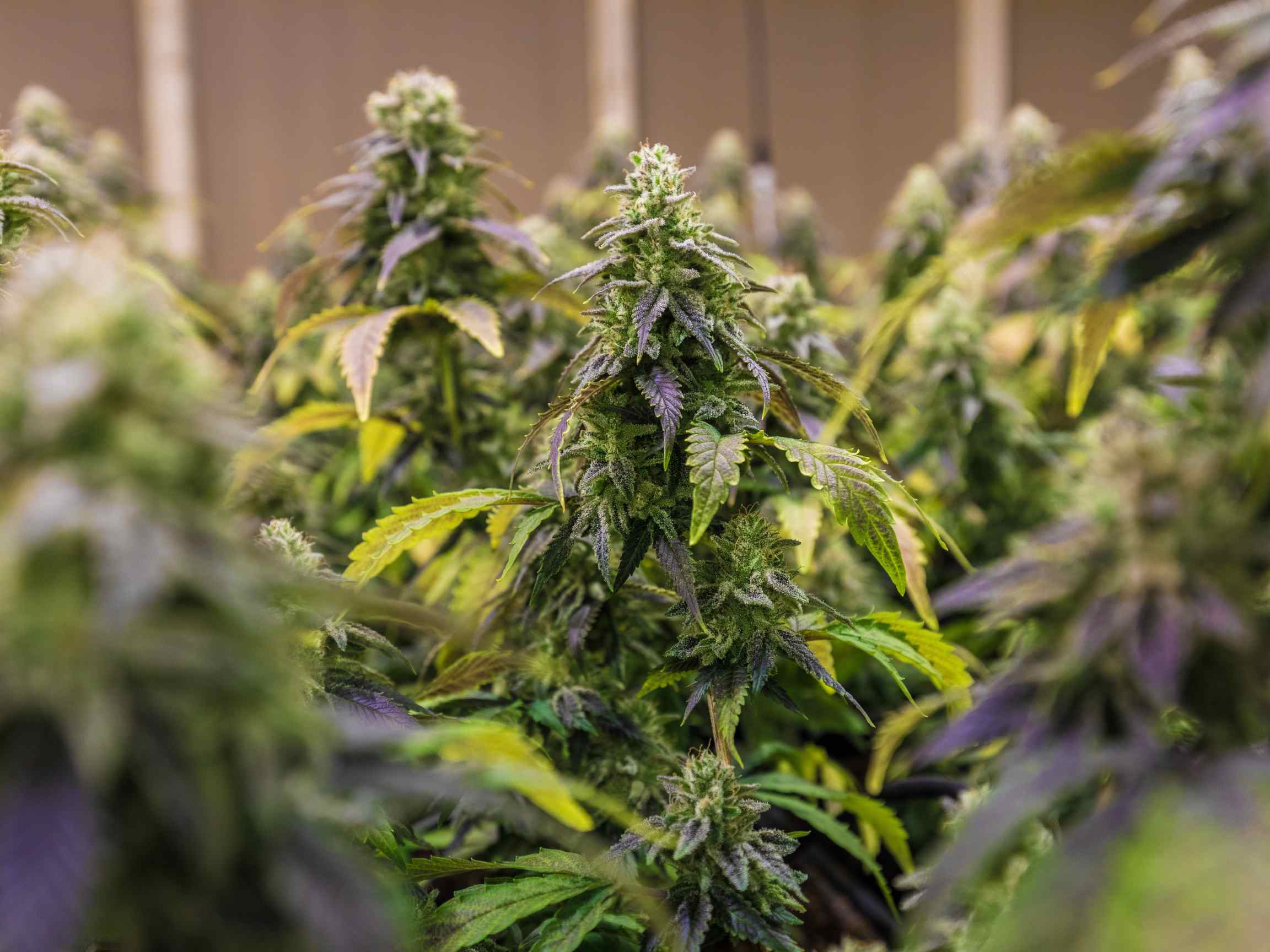
Managing cash flow for a cannabis business can be challenging. The constant waiting for customers to pay their invoices can make it difficult to keep the business afloat.
But imagine if there were a solution that allowed you to access the funds you need when you need them. What if your accounts receivable (AR) could serve as collateral to secure a loan?
Introducing cannabis AR financing — a game-changing financial option. This innovative type of loan uses your AR as collateral, providing a quick and hassle-free way to obtain the necessary capital without relinquishing equity in your business.
What is Cannabis AR Financing?
Cannabis AR financing is a specialized financial solution designed to address the cash flow challenges cannabis companies face. With this type of financing, cannabis businesses use their outstanding invoices (accounts receivable) as collateral to secure a loan or line of credit.
The key difference between cannabis AR financing and traditional financing options lies in the collateral used and the lending criteria. Traditional banks and financial institutions may be hesitant to provide loans to cannabis businesses because of the industry’s regulatory complexities and perceived higher risk.
Cannabis AR financing takes a different approach by focusing on the value of the outstanding invoices and the likelihood of timely payment by customers. This allows cannabis companies to access capital without giving up equity in their business or facing the typical barriers associated with traditional financing.
Current Cash Flow Challenges for Cannabis Companies
Cash flow challenges cannabis companies face stem from the industry’s unique characteristics and regulatory environment.
One of the most significant obstacles for cannabis companies is restricted access to traditional financing channels. Because of cannabis’s federal classification as a Schedule I controlled substance, many financial institutions, including banks and credit unions, are hesitant or prohibited from providing loans or financial services to cannabis businesses. This lack of access to mainstream financing options severely limits their ability to secure capital for operational expenses and growth initiatives.
The cannabis industry is known for its high operating costs, which include expenses related to cultivation, processing, compliance, security and distribution. The industry’s cash-intensive nature poses challenges for cash flow management. Handling significant amounts of cash for transactions can be risky and cumbersome, leading to increased security expenses and making it difficult to monitor and track cash flow effectively.
Cannabis is legal for medical or recreational use in many states, but it remains illegal at the federal level. This creates a complex regulatory landscape with varying rules and compliance requirements from state to state. The ever-changing regulations and uncertain legal status can impact the operations and financial stability of cannabis companies, leading to cash flow fluctuations and challenges in planning for the future.
The illegal status of cannabis at the federal level also makes cannabis companies ineligible for traditional credit solutions, such as Small Business Administration (SBA) loans. The government-backed loans are typically accessible to other small businesses and offer favorable terms, but cannabis businesses are excluded from this valuable source of financing because of the industry’s federal legal classification.
The legal ambiguity surrounding marijuana has led to banks’ reluctance to establish relationships with cannabis companies. As a result, many cannabis businesses struggle to find banking partners willing to provide essential financial services like checking accounts, merchant processing and other banking facilities. This lack of banking services exacerbates cash flow management challenges, making it difficult for businesses to efficiently manage their funds and financial transactions.
The traditional avenues for raising funds, such as venture capital or private equity investments, may also be less accessible for cannabis companies because of the industry’s perceived risk. Investors and institutions may be hesitant to invest in cannabis businesses, fearing potential legal and regulatory complications that can hinder growth opportunities and limit available funding sources.
Despite the challenges, specialized lenders offer a solution. Cannabis AR financing is just one of the many different types of financing cannabis lenders offer to meet the needs of cannabis businesses.
Advantages of Cannabis AR Financing
Here are a few of the main advantages of cannabis AR financing:
Improved Cash Flow Management and Working Capital
Cannabis AR financing enables businesses to convert their outstanding invoices into immediate cash, improving their cash flow management. Instead of waiting for customers to pay their invoices, the company can access funds upfront, allowing for smoother day-to-day operations. The increased working capital provides the flexibility to cover operating expenses, pay employees and invest in new initiatives without disruptions caused by delayed payments.
Access to Immediate Funds for Business Operations
With cannabis AR financing, companies gain rapid access to funds based on the value of their accounts receivable. The quick infusion of capital is particularly valuable in an industry with high operational costs and cash-intensive transactions. Businesses can promptly address unexpected expenses, seize time-sensitive opportunities or invest in critical resources, helping them remain competitive in a fast-paced market.
Reduced Reliance on Traditional Financing Options
Given the limited availability of traditional financing options for cannabis companies, AR financing provides an alternative and reliable source of funding. By leveraging their accounts receivable as collateral, cannabis businesses can bypass the hurdles and uncertainties associated with seeking loans from conventional banks or other financial institutions. The reduced reliance on traditional financing allows cannabis companies to sustain and grow their operations without being held back by the lack of accessible capital.
Flexibility and Scalability to Support Business Growth
Cannabis AR financing offers flexibility in managing financial needs, especially during periods of expansion or increased demand. As the business grows, so do the outstanding invoices, providing a scalable financing solution. Unlike fixed loan amounts, the funding available through AR financing adapts to the company’s evolving financial requirements, enabling seamless adjustments to support business growth.
Example of AR Financing for a Cannabis Company
Imagine a cannabis cultivation company facing cash flow constraints because of delayed payments from their dispensary clients. As the company continues to produce high-quality cannabis products, it experiences an increase in demand from retailers. But the extended payment terms in the industry mean it must wait weeks or even months for their invoices to be settled.
To maintain its operations and meet the growing demand, the cannabis company decides to pursue AR financing. It partners with a specialized lender that evaluates the creditworthiness of its dispensary clients and the value of outstanding invoices. Based on this assessment, the lender approves a financing amount equal to a percentage of the outstanding invoices.
With the immediate infusion of funds, the cannabis company can purchase essential supplies, expand its cultivation facility and invest in advanced equipment to meet the rising demand. The improved cash flow management allows it to pay its employees on time and maintain a steady production schedule without facing financial strain.
As its accounts receivable continues to grow with increasing sales, the company can access additional funds through AR financing. This flexibility ensures it can continually support its business growth without giving up equity or relying on traditional financing options with limited accessibility.
The Process of Cannabis AR Financing
The process may vary slightly from lender to lender, but generally, the steps are the same:
- Application and documentation: The process begins with the cannabis company applying for AR financing with a specialized lender that offers this type of financial product. The company must provide relevant documentation, including details of its outstanding invoices, customer information and historical payment records.
- Assessment of invoices: The lender carefully reviews the outstanding invoices to determine their value and legitimacy. It will typically consider factors such as the total amount of outstanding invoices, the age of the invoices (how long they have been due) and the credit terms offered to customers.
- Customer creditworthiness evaluation: One of the critical aspects of cannabis AR financing is the assessment of the creditworthiness of the cannabis company’s customers, who are responsible for paying the outstanding invoices. The lender will evaluate the customers’ credit history, payment patterns and overall financial stability. This step is crucial because the repayment of the loan depends on the customers settling their invoices promptly.
- Loan approval and terms: Based on the assessment of the invoices and customer creditworthiness, the lender will decide whether to approve the loan and determine the loan amount and terms. The loan amount is typically a percentage of the total value of the outstanding invoices, and the interest rate and repayment period will also be defined at this stage.
- Funds disbursement: Once the loan is approved, the cannabis company can access the funds from the lender. The funds are disbursed based on the value of the accounts receivable that the company has pledged as collateral. This provides the company with immediate access to the capital it needs to address various financial needs, such as covering operational expenses, investing in growth or purchasing inventory.
- Loan repayment: As customers pay their outstanding invoices, the cannabis company uses the proceeds to repay the loan to the lender. Depending on the terms of the loan, the payments may be made in installments or as a lump sum when the invoices are settled.
- Ongoing relationship: The relationship between the cannabis company and the lender continues throughout the loan period. The lender may provide periodic updates on the status of the outstanding invoices and work with the company to ensure timely repayment.
Boost Your Green and Grow with a Specialized Lender
Cannabis AR financing is an option for cannabis businesses seeking financial support and flexibility. By leveraging accounts receivable, businesses can access the working capital they need to navigate the industry’s challenges and capitalize on growth opportunities. Navigating the complexities of cannabis financing requires expertise and an understanding of the industry’s regulatory landscape.
Working with a specialized lender can be a crucial step in securing the ideal financial solution for your cannabis business needs. A specialized lender with experience in the cannabis sector can provide tailored advice and explore various financing options, including cannabis AR financing, to meet your requirements. It can help navigate the intricacies of the cannabis industry, address regulatory concerns and devise a customized financing plan that aligns with your business goals.
With the right specialized lender, cannabis businesses can unlock their full potential, seize growth opportunities and confidently navigate the dynamic cannabis market. Don’t hesitate to explore cannabis AR financing and other suitable options with a knowledgeable partner to pave the way for your business’s success.
Frequently Asked Questions
Q: What is the difference between AR financing and factoring?
AR financing uses accounts receivable as collateral for a loan, while factoring involves selling the invoices to a third party at a discount for immediate cash.
Q: Is AR financing worth it for cannabis companies?
Yes, AR financing can be beneficial for cannabis companies to improve cash flow and quickly access funds without giving up equity.
Q: What are the types of accounts receivable?
Types of accounts receivable include trade receivables from customers, nontrade receivables from noncustomers and notes receivable or promissory notes.





















